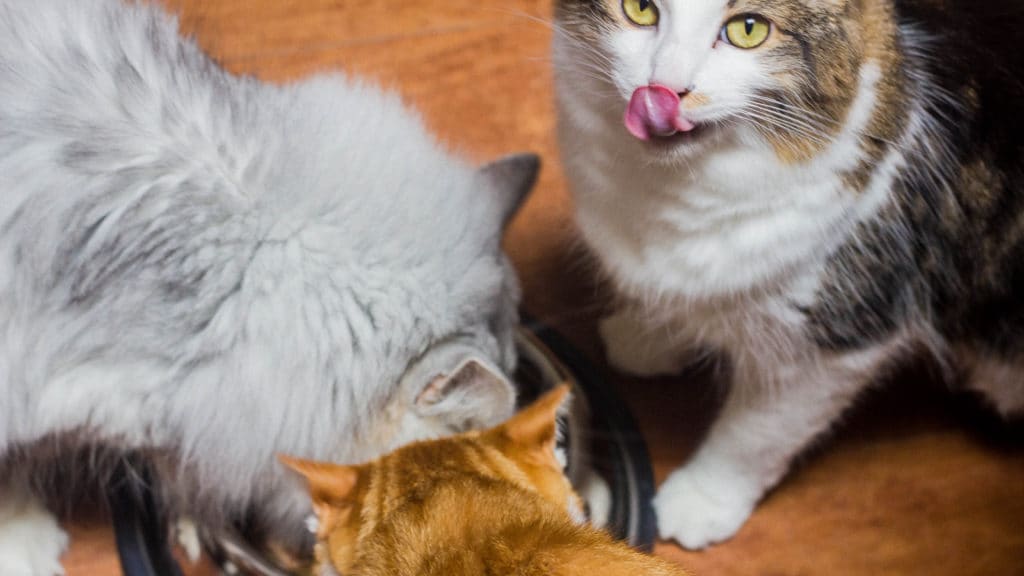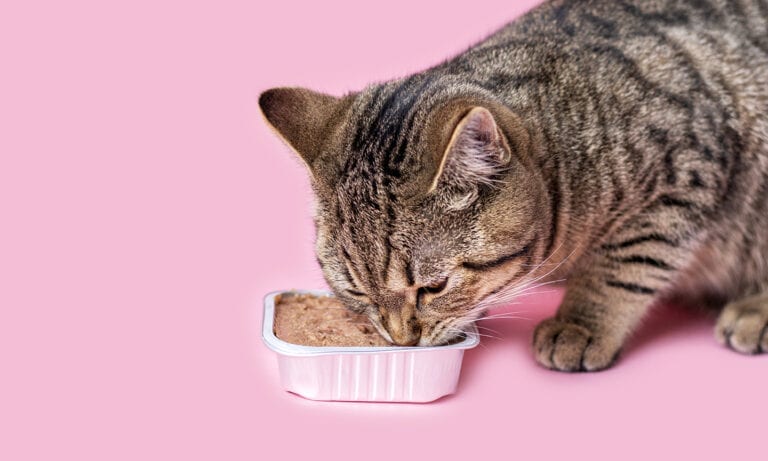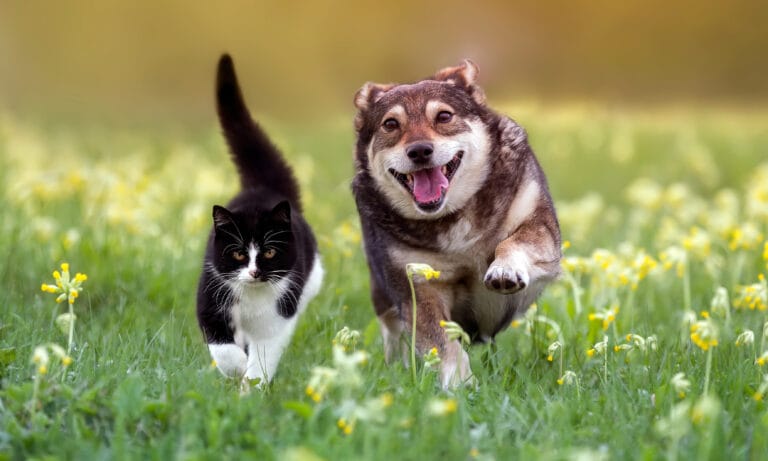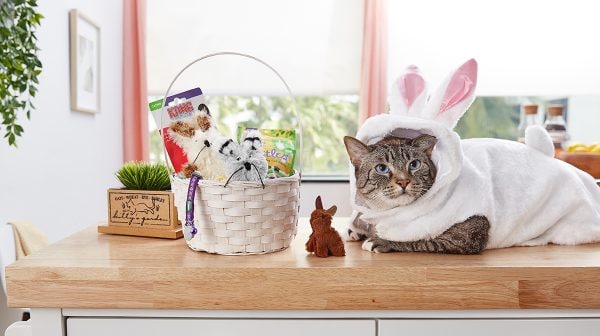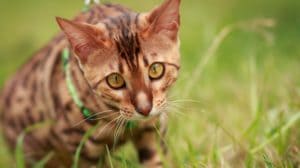Dry cat food, wet cat food, grain-free cat food—with so many diets available, how do you choose the best cat foods for your multi-cat household?
If you have more than one healthy, adult cat, you can feed all the cats in your household the same food provided the food a) meets certain nutritional requirements and b) none of the cats have special dietary needs.
Meeting the Nutritional Requirements for Cats
Healthy, adult cats require a diet that’s rich in amino acids from protein, fatty acids and carbohydrates, vitamins, minerals and water, according to the National Resource Council’s “Nutrient Requirements of Dogs and Cats.” The council’s report provides guidance to the U.S. Food and Drug Administration for regulating and ensuring the safety of pet foods.
When looking at various dry cat foods or wet cat foods, start by looking at the pet food’s label, says Andrea Fascetti, Ph.D., VMD, a veterinary nutritionist and professor at the University of California, Davis.
“The owner should look at the pet food bag or can itself for the AAFCO [Association of American Feed Control Officials] statement,” she says. “AAFCO has structured guidelines for validating life stage adequacy of foods.”
Essentially, the AFFCO’S nutritional adequacy statement will say the food supports either growth, which is formulated for growing kittens, or maintenance, which is formulated for adults, Dr. Fascetti says.
“The nutritional needs are different between adults and kittens,” she says, “so maintenance foods are designed a little bit differently to meet those needs.”
5 Food Choices for Families with Multiple Adult Cats
Once you’ve confirmed that the formula is nutritionally sound for your adult cats, read the ingredient list. Will it be chicken, beef or salmon? Dry kibble, pate or chunks bathed in gravy? Whether you have one hungry adult cat or a house full of them, provide a nutritious, delicious maintenance diet like one of these:

Photo: Chewy.com
1
Whole Earth Farms Grain-Free Real Chicken Recipe Dry Cat Food
A complete and balanced diet for adult cats should include 12.5 grams of crude protein and 5.5 grams of total fat, according to the NRC’s recommendations. Dietary protein contains 10 specific amino acids, including taurine, that cats require but can’t make on their own.
Fats serve as carriers for fat-soluble vitamins, play a role in cell structure and function, keep your cat’s skin and coat healthy and make food taste good. A dry cat food like Whole Earth’s chicken recipe has the protein and fat adult cats need to thrive.
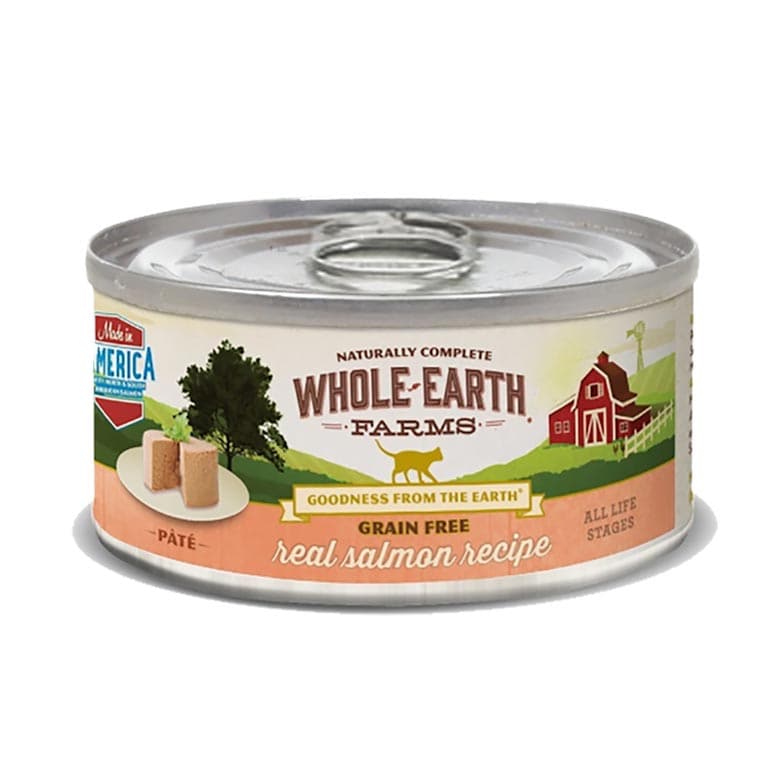
2
Whole Earth Farms Grain-Free Real Salmon Pate Recipe Canned Cat Food
Cats do not require dietary carbohydrates like grains, cereals, legumes and other plant foods, says the NRC—but those carbs do provide an abundant source of energy, which cats use to sustain the normal activities of daily life. Whole Earth’s grain-free canned salmon pate contains organic alfalfa and flaxseed, two plant-based ingredients that provide healthy carbs and fat for active felines.
3
American Journey Minced Turkey Recipe in Gravy Grain-Free Canned Cat Food
In addition to protein and fat, cats require a range of vitamins and minerals in their diets, says the NRC. Vitamins, which are compounds used in a cat’s metabolic activity, include vitamins A, D, E, K, B1, B6, B12, riboflavin, niacin, pantothenic acid and folic acid.
Cats need 12 minerals in their diets too, including calcium, phosphorus, magnesium, sodium, potassium, chlorine, iron, copper, zinc, manganese, selenium and iodine. American Journey’s minced turkey recipe contains all the essential vitamins and minerals in a palatable meat-and-gravy formula that cats instinctively crave.
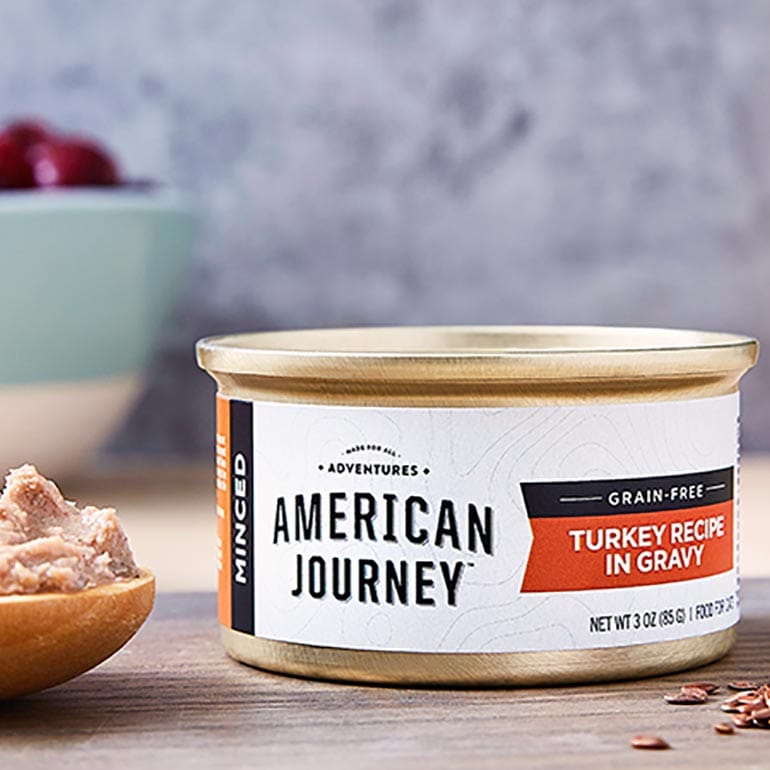
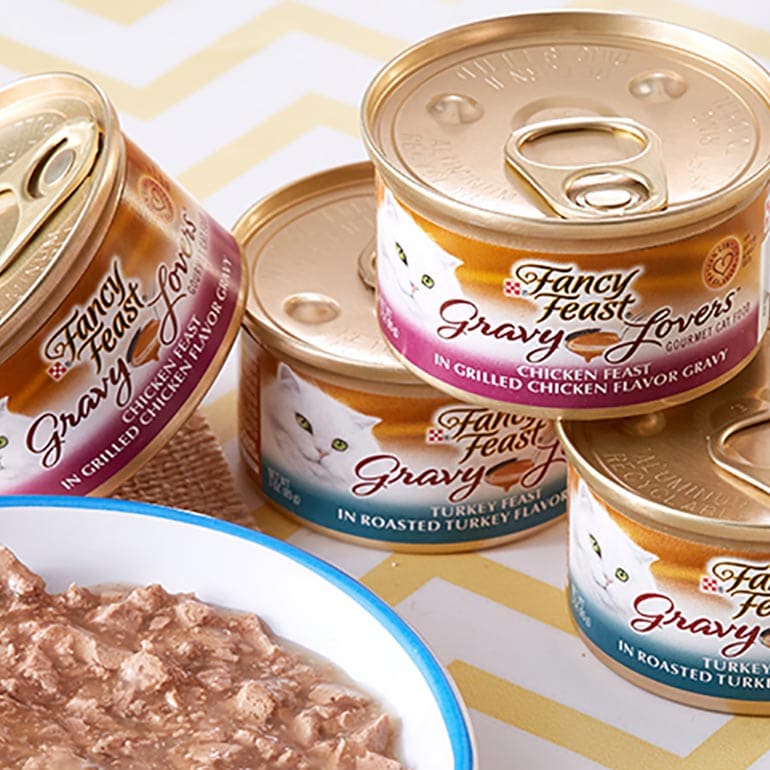
4
Fancy Feast Gravy Lovers Poultry & Beef Feast Variety Pack Canned Cat Food
Water is critical for just about every living creature’s health and well-being, including cats. Unfortunately, cats have a weak thirst drive and often don’t get enough water—even when you provide free access to fresh, clean water.
Wet cat foods, like Fancy Feast’s chicken, turkey or beef formulas, can help. They contain more than 80 percent moisture, which will help keep your cats hydrated.
5
Royal Canin Feline Health Nutrition Adult Instinctive Thin Slices in Gravy Canned Cat Food
In addition to protein and fat, cats require a range of vitamins and minerals in their diets, says the NRC. Vitamins, which are compounds used in a cat’s metabolic activity, include vitamins A, D, E, K, B1, B6, B12, riboflavin, niacin, pantothenic acid and folic acid.
Cats need 12 minerals in their diets too, including calcium, phosphorus, magnesium, sodium, potassium, chlorine, iron, copper, zinc, manganese, selenium and iodine. American Journey’s minced turkey recipe contains all the essential vitamins and minerals in a palatable meat-and-gravy formula that cats instinctively crave.
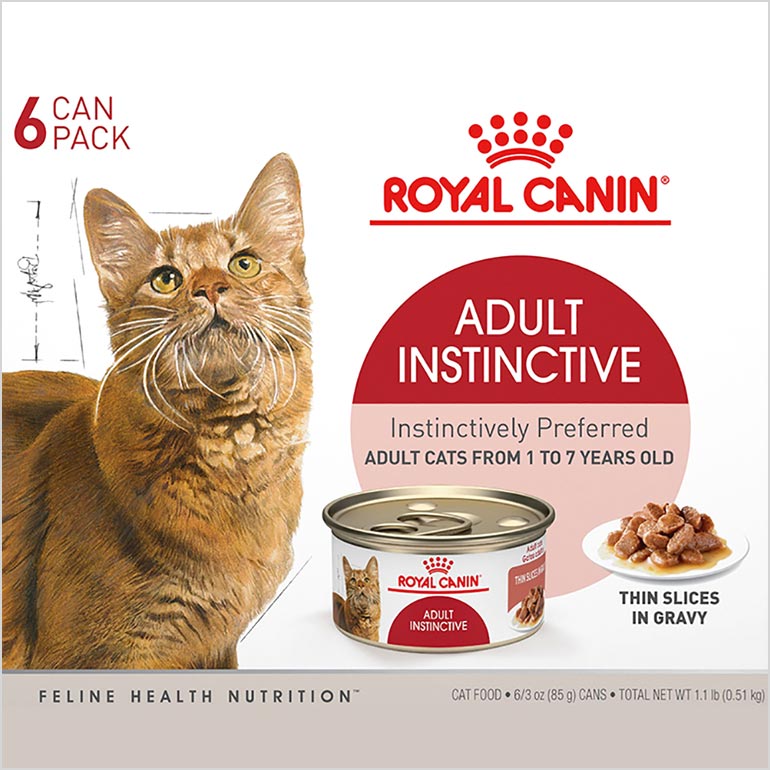
Cats can be finicky eaters, so the taste, texture and moisture content of your dry or wet cat food is important to consider, says the NRC. Some cats may prefer a pelleted or chunky texture that is moist and smells and tastes delicious—much like Royal Canin’s thin meat slices in gravy. With its balance of proteins, fats, carbohydrates, minerals and vitamins, this palatable diet will give your cats what they love.
Special Cats, Special Needs
If one of your cats has special dietary needs, talk to your veterinarian about how best to choose a dry cat food or wet cat food. Plenty of options are available for cats who are over- or underweight, have environmental or food allergies, or suffer from kidney or other health issues.
When it comes to selecting a particular cat food, Dr. Fascetti says that quality does differ across the various brands, so a consultation with your veterinarian can help you choose the right one.
“The vet knows you, knows your situation, and will be able to help you pick a diet that’s right for you,” Dr. Fascetti says. “There are certainly good products at every level—grocery store, pet store, veterinary office—that can be used to healthily support a cat’s dietary needs. There’s no reason why somebody shouldn’t be able to find a good quality cat food.”
Share:
